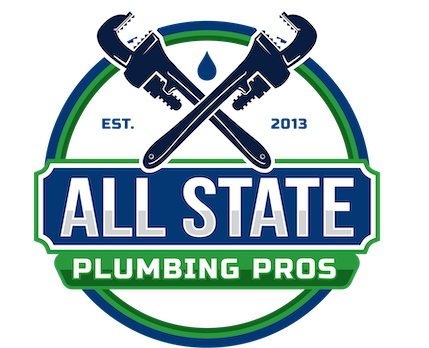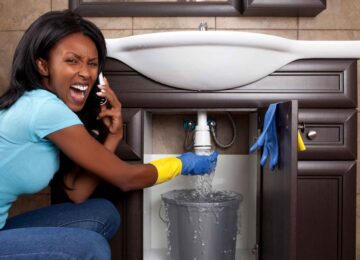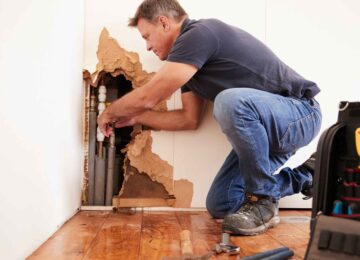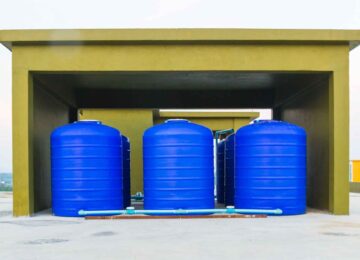Few things disrupt your daily routine like a clogged drain. Whether it’s a slow-draining bathroom sink, a backed-up kitchen sink, or standing water in your shower, drain clogs can lead to foul odors, water damage, and costly plumbing issues if left untreated. The good news? Most clogged drains can be resolved quickly and affordably at home, as long as you know what you’re doing. In this guide, you’ll learn how to unclog a drain effectively using safe, tested methods ranging from natural remedies to simple tools like plungers and drain snakes. You’ll also discover when it’s time to call in a professional plumber.
What Causes a Clogged Drain?
Clogged drains typically occur when everyday debris accumulates inside your pipes. In bathrooms, this often means hair, soap scum, and toothpaste residue. In kitchens, grease, oil, food scraps, and coffee grounds are the usual culprits. Over time, this buildup narrows the drain opening and restricts water flow, leading to partial or complete blockages.
In many cases, the blockage forms in the P-trap, the curved pipe beneath your sink that holds water to block sewer gases. This area is especially prone to collecting debris. Other common problem spots include the drain plug area, joints between older pipes, and bends in the drain line where pressure builds and slows water.
Understanding what causes clogs helps you choose the right cleaning method and avoid further damage. For example, using harsh chemicals on grease buildup can worsen the clog by hardening the residue, while plungers may be ineffective against clogs caused by solid objects.
Quick DIY Drain Cleaning Methods That Work
When you’re dealing with a minor clog, you don’t need to reach for chemical cleaners right away. Simple, eco-friendly methods can be surprisingly effective and safer for your pipes.
One of the most trusted natural solutions is the combination of baking soda and vinegar. This mixture creates a chemical reaction that produces bubbling action, which helps break apart grease and soap scum in your pipes. To use this method:
- Pour one cup of baking soda down the clogged drain.
- Follow with one cup of vinegar (white vinegar works best).
- Let it sit for 30 minutes.
- Carefully pour a large pot of boiling water down the drain to flush out loosened debris.
You can also try pouring just boiling water and dish soap down the drain. This works well for kitchen sinks clogged with grease. The hot water melts fat while dish soap helps emulsify it for easier flushing.
Plungers are another essential tool. A sink plunger (different from a toilet plunger) creates suction that dislodges soft clogs near the drain opening. To use it effectively, ensure there’s enough water in the sink to cover the plunger cup and create a tight seal. Then plunge forcefully 8–10 times.
If you don’t have a plunger, some DIYers use a plastic bottle to create pressure. Simply cut the bottom off a bottle, place the open end over the drain, and push down hard to simulate suction.
Advanced DIY Solutions for Tougher Clogs
When a clog doesn’t respond to natural methods or plunging, it may be deeper in the line. At this point, mechanical tools like drain snakes become more useful. A drain snake or plumbing auger is a flexible metal cable that can reach several feet into the pipe to break up or hook debris.
Insert the snake into the drain slowly. When you feel resistance, rotate the handle to dislodge the clog. You may need to repeat the process several times, especially if the blockage consists of tangled hair or fibrous food scraps.
A wet/dry vacuum is another tool that can suck clogs out of the drain. Set the vacuum to liquid mode, create a tight seal over the drain opening (a wet cloth can help), and turn it on. This method works well for solid obstructions like small objects.
You can also combine boiling water with mechanical methods to loosen clogs faster. For instance, after snaking the drain, follow with a pot of boiling water to rinse away remaining debris.
Should You Use Chemical Drain Cleaners?
Chemical drain cleaners can be tempting; they promise quick results with little effort. However, these solutions often contain harsh chemicals that can damage your plumbing over time. Ingredients like sodium hydroxide and sulfuric acid eat away at pipes, especially older PVC or metal plumbing.
They’re also dangerous to handle, emitting toxic fumes and causing burns on contact. If you use a chemical cleaner, wear rubber gloves, ventilate the area, and never mix products.
Professionals generally recommend using chemical cleaners only as a last resort. They may temporarily dissolve clogs, but they don’t always remove the root cause and often make future clogs worse by hardening grease or pushing debris further down the line.
If you’ve already tried baking soda, plungers, and snakes with no luck, it’s usually better to call a plumber than risk pipe damage from chemical solutions.
When to Call a Professional Plumber
Sometimes, a clog is too severe or persistent for DIY methods. If you’ve tried multiple solutions and still experience slow drainage, standing water, or backups in other drains, it’s time to seek professional help.
Signs you need a plumber:
- More than one drain is clogged at the same time
- You smell a foul sewer odor coming from the drains
- Water backs up into the sink or tub when you flush the toilet
- DIY methods have made the clog worse
A licensed plumber has access to specialized tools, such as video inspection cameras, hydro-jetters, and professional-grade augers, that can reach and remove deep clogs without harming your pipes.
At All State Plumbing Pros, we offer 24/7 emergency drain cleaning services in Connecticut and New York. We don’t just clear your clogs, we fix the underlying problem and help prevent future issues.
How to Prevent Clogged Drains Long-Term
Preventive maintenance is the easiest and most cost-effective way to avoid clogged drains. Just a few simple habits can dramatically reduce your risk of future blockages.
First, avoid pouring grease, oil, or coffee grounds down the kitchen sink. These substances solidify and stick to the pipe walls. In bathrooms, use drain screens to catch hair and soap scum before they enter the drain.
Also:
- Run hot water down the drain weekly to keep it clear
- Use an enzyme-based drain cleaner monthly to break down organic buildup
- Clean your P-trap every few months to remove hidden clogs
- Avoid flushing items like cotton balls, wipes, or paper towels
Consider scheduling a professional drain cleaning once a year if you have an older plumbing system or live in a hard water area.
Conclusion
Knowing how to unclog a drain quickly and safely is a skill every homeowner should have. While baking soda, boiling water, and plungers are often enough for minor clogs, tougher blockages may require tools like drain snakes or even professional help. The most important thing is to act early and avoid making the problem worse with chemical cleaners or poor technique.
Still stuck with a stubborn clog? Don’t let a blocked drain disrupt your day. Whether it’s a kitchen sink, shower, or bathroom drain, All State Plumbing Pros is here to help, 24/7. Our licensed plumbers use professional tools to clear even the toughest clogs quickly and safely. Contact us now for fast, affordable drain cleaning in Connecticut and New York.
FAQs
How to unclog a drain quickly?
To unclog a drain quickly, pour a kettle of boiling water down the drain, followed by a mix of baking soda and vinegar. Let it sit for 30 minutes, then flush with more hot water. This is one of the fastest and safest methods for minor clogs.
What will dissolve a blocked drain?
A mix of baking soda and vinegar can dissolve many types of drain blockages, including grease and soap scum. For tougher clogs, a drain snake or professional plumber may be necessary to fully clear the obstruction.
What is the best way to unblock a drain?
Start with natural methods like hot water and baking soda. If that doesn’t work, try using a plunger or drain snake. Avoid chemical cleaners unless other methods fail, and always follow safety instructions.
What can I put down a drain to unblock it?
You can safely use baking soda, vinegar, and boiling water to clear most household clogs. Avoid using bleach or harsh chemical cleaners unless necessary. Enzyme-based drain products are also a good preventive option.

![The Best Ways to Learn How to Unclog a Drain Quickly and Easily Few things disrupt your daily routine like a clogged drain. Whether it’s a slow-draining bathroom sink, a backed-up kitchen sink, or standing water in your shower, drain clogs can lead to foul odors, water damage, and costly plumbing issues if left untreated. The good news? Most clogged drains can be resolved quickly and affordably at […]](https://allstateplumbingct.com/wp-content/uploads/2025/08/The-Best-Ways-to-Learn-How-to-Unclog-a-Drain-Quickly-and-Easily-750x420.jpg)



Leave a Reply